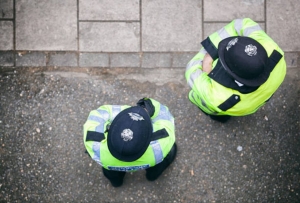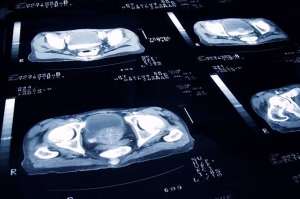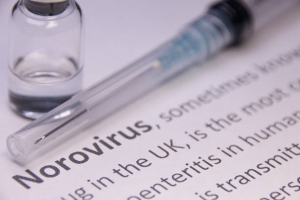World's First Robotic Double Lung Transplant Offers New Hope for COPD Patients
On 22 October, Cheryl Mehrkar made history as the recipient of the first-ever fully robotic double lung transplant at NYU Langone Health in Manhattan. This groundbreaking surgery marks a significant step forward in medical innovation, showcasing the potential of robotics in complex procedures.
Mehrkar, a healthcare professional, had battled chronic obstructive pulmonary disease (COPD) for over a decade. Her condition worsened significantly after a severe bout of Covid-19. Determined to find a solution, she spent years exploring treatment options before becoming eligible for this pioneering surgery. The procedure offered a lifeline when traditional methods provided limited hope.
The robotic technique builds on advances in minimally invasive surgery, aiming to revolutionise the patient experience. By reducing the need for large incisions, it promises shorter hospital stays, quicker recovery times, and fewer complications. This innovation represents a turning point in how complex surgeries may be performed in the future.
Now, almost a month after the operation, Mehrkar is on the brink of being discharged from the hospital. Her recovery has progressed steadily, offering a glimpse into the transformative potential of robotic-assisted medical procedures. Her journey symbolises hope not just for her, but for countless others awaiting similar advancements in healthcare.
Councillor Urges Action on Pharmacy Shortage
A councillor has called on NHS leaders to address the shortage of pharmacies in Bracknell Forest, Berkshire, after new data revealed the area has one of the lowest pharmacy provisions in the country. Research by the National Pharmacy Association (NPA) found Bracknell Forest ranked fourth lowest nationally for the number of pharmacies per 100,000 residents.
Councillor Sophie Forster has urged the Frimley Integrated Care Board (ICB) to ensure adequate facilities in the borough. Ahead of a full council meeting on 27 November, she highlighted the strain on local services, noting that a 10% population increase since 2011 has coincided with pharmacy closures and reduced opening hours. Despite this, an ICB spokesperson stated that current pharmacy services in Bracknell meet existing requirements but acknowledged the challenging environment faced by health service providers nationwide.
The role of pharmacies is expanding under the government’s Pharmacy First scheme, which aims to ease pressure on GP services by encouraging people to seek advice and treatment at local chemists. However, years of underfunding have led to reduced operating hours and the closure of some pharmacies. Next year, around 8,000 pharmacies in the NPA are expected to take collective action to highlight these challenges.
The NPA also raised concerns about "pharmacy deserts," particularly in rural areas. Neighbouring Wokingham was ranked second lowest for pharmacy provision, with West Berkshire having the fewest pharmacies. NPA chief executive Paul Rees warned that continued closures pose a serious threat to medication access, urging action to prevent further strain on communities.
Guernsey Mind Launches Festive Campaign to Support Mental Health
A new campaign is being launched by Guernsey Mind to provide support and guidance for those struggling with mental health during the festive season. The You Are Not Alone campaign will run from late November to January, aiming to equip people with the knowledge and confidence to support others who may be facing challenges. Information boards, posters, stickers, and cards will be distributed across the island, offering details of where individuals can turn for help.
The initiative focuses on encouraging open conversations about mental health and providing practical advice on how to respond if someone shares their struggles. Jo Cottell, Chief Executive of Guernsey Mind, emphasised the importance of knowing how to react in such situations, stating: “Talking is vital, but it’s not always easy to know what to say or do when someone confides in you.”
As part of the campaign, Guernsey Mind is introducing free mental health awareness training sessions. These 90-minute sessions are tailored for people in roles that involve regular public interaction, such as hairdressers, taxi drivers, and sports coaches. The training covers recognising signs of poor mental health, improving listening skills, and providing tips on how to offer support and direct individuals to further help.
Cottell expressed enthusiasm for the campaign, highlighting its accessibility: “We’re thrilled to offer this training free of charge to those who engage with people daily and want to enhance their ability to support others.” The charity hopes the campaign will foster greater awareness and understanding throughout the community.
UK Gynaecology Waiting Lists Double Since 2020, With Urgent Action Needed
Gynaecology waiting lists in the UK have more than doubled since early 2020, with research indicating approximately 755,000 appointments are currently pending up from 360,400 before the pandemic. This suggests over 630,000 women are waiting for care related to conditions such as endometriosis, fibroids, menopause symptoms, and incontinence. Health leaders warn that the backlog is having a detrimental effect on women’s lives, with many unable to work or participate fully in daily activities.
The Royal College of Obstetricians and Gynaecologists (RCOG) has criticised the lack of priority given to women’s health, highlighting that gynaecology has one of the longest waiting lists among elective specialities. A recent report suggests the economic impact of untreated conditions, such as heavy periods and ovarian cysts, costs the UK economy nearly £11 billion annually due to workplace absences. RCOG is calling for increased and sustained investment in women's healthcare to address this crisis and prevent further deterioration of patients' health.
Some initiatives are underway to improve the situation, including the expansion of women’s health hubs and community-based care teams. Governments across the UK are also developing long-term women’s health plans, although progress has been slow. While recent NHS data shows a slight improvement in waiting times, the figures remain far worse than pre-pandemic levels, with over 22,000 patients now waiting more than a year for care.
Health ministers have pledged to address the issue, with commitments to invest in women’s health services. However, experts insist that immediate action is necessary to reduce waiting lists and prevent further harm. Improved access to timely diagnosis and treatment would not only benefit patients’ physical and mental wellbeing but also reduce the broader economic and societal costs of delayed care.
Government Bans Police Cells for Mental Health Detentions in Major Law Reform
The government plans to introduce legislation in England and Wales banning the use of police cells as a "place of safety" for individuals detained under the Mental Health Act. Currently, officers can hold people in cells for up to 24 hours while they await assessment by a doctor. The changes, which aim to modernise decades-old mental health laws, will also strengthen the rights of those receiving treatment. While the reforms have been welcomed by charities, they have highlighted the urgent need for increased investment in mental health services.
Proposed by the previous government following a review in 2018, the move to outlaw police cells in these situations has long been called for. Though use of cells has decreased significantly in recent years, from 4% of detentions in 2017 to just 1% last year, campaigners stress the importance of providing suitable healthcare alternatives. MPs reviewing earlier drafts of the law supported the ban but emphasised the need for more healthcare-based facilities to support those in crisis.
The new legislation will also address inequalities within the current system, which disproportionately affects certain groups, including Black people. Changes include a 28-day limit on detentions for autistic individuals and those with learning disabilities, unless accompanied by mental health conditions. Patients will gain new rights to appoint representatives and have their preferences considered during treatment decisions.
While these reforms have been praised as a step towards a more humane mental health system, charities such as Mind and the National Autistic Society warn that successful implementation depends on adequate funding and resources. Labour’s plan also includes raising thresholds for detention and ensuring treatments offer real therapeutic benefits, aiming to align mental health care with modern standards.
Sir Chris Hoy's Call Spurs NHS Review of Prostate Cancer Testing
The NHS is set to review its guidelines on prostate cancer testing following Olympic champion Sir Chris Hoy’s heartfelt call for earlier screening. Sir Chris, 48, who has advanced, terminal prostate cancer, has urged men with a family history of the disease to speak to their GPs about the PSA (prostate-specific antigen) blood test, which can help detect the condition. Currently, PSA tests are not routinely offered to men under 50 unless they have symptoms, but Sir Chris argues for lowering the age threshold to catch cases earlier.
Health Secretary Wes Streeting acknowledged Sir Chris’s powerful plea, confirming that he has asked the NHS to examine the case for reducing the age for PSA testing. NHS guidelines currently allow men over 50, or those experiencing symptoms, to request the test. However, routine PSA screening is not offered as the test alone is considered unreliable for diagnosing prostate cancer. Experts are exploring whether combining PSA testing with MRI scans could improve detection.
Prostate Cancer UK has backed the call, highlighting that one in eight men will develop the disease, with those at higher risk, such as black men and those with a family history, encouraged to discuss testing from age 45. The charity emphasised that prostate cancer often presents no early symptoms, leading to too many late, incurable diagnoses.
Sir Chris spoke candidly about the shock of his diagnosis and the challenges of sharing the news with his family. Despite his prognosis, he remains focused on raising awareness, saying he hopes his story will prompt more men to seek testing and drive changes in screening policies. His message is one of gratitude and prioritising what matters most, as he continues to advocate for earlier intervention to save lives.
New Norovirus Vaccine Trial Begins to Ease Winter Strain on NHS
A new vaccine aimed at protecting against norovirus, the common stomach bug causing vomiting and diarrhoea, is set to be trialled on around 25,000 adults, primarily over 60s, across more than six countries over the next two years. This highly contagious winter virus affects people of all ages, leading to widespread issues such as school and work absences and even hospital ward closures.
If successful, researchers say the vaccine could significantly reduce hospital admissions for vulnerable adults during the winter months, easing the burden on healthcare systems like the NHS. Developed by Moderna, this mRNA vaccine works by teaching the immune system to recognise norovirus and respond by producing antibodies. Unlike flu and COVID-19, which have established vaccines, this would be the first vaccine against norovirus.
The trial, backed by the UK Government, the National Institute for Health and Care Research (NIHR), and Moderna, will involve 27 NHS hospitals and centres across England, Scotland, and Wales. Half of the participants will receive the vaccine, while the others will serve as a comparison group, allowing researchers to evaluate effectiveness and monitor any potential side effects.
The impact of norovirus on the UK is substantial, with nearly four million people infected annually, leading to 12,000 hospital admissions and costing the NHS approximately £100 million each year. If proven effective with at least 65% efficacy, this vaccine could ultimately be extended to protect children, with researchers working to gather robust data for regulatory approval.
Support for NHS App Access Now Available at 1,400 Libraries Across England
The NHS is expanding support for the public to access online health services, including guidance on using the NHS App, now available at over 1,400 libraries across England. More than two in five library services have already joined the initiative, with more expected to participate in the coming months. This support is particularly valuable for people from disadvantaged areas, where internet access and personal devices may be limited.
Libraries are playing an essential role in increasing digital health access, offering a safe, local space where people can receive help with NHS online resources. Recent NHS and library partnerships have led to toolkits and resources designed to assist library staff in supporting visitors with health-related digital skills, making online health services more accessible to those who need them most.
The NHS App, with over 35 million users since its 2018 launch, allows patients to access various features such as GP records, prescription orders, and hospital appointment management. The initiative aims to encourage more people to take advantage of these services, empowering them to better manage their health independently.
Digital sessions have already begun in libraries like Bitterne Library in Southampton, where participants are finding one-on-one guidance beneficial. With continuous improvements to the app, patients across England are now able to access health services more conveniently, further enhancing health equity and accessibility.










